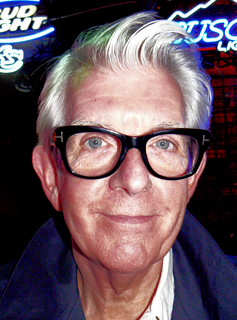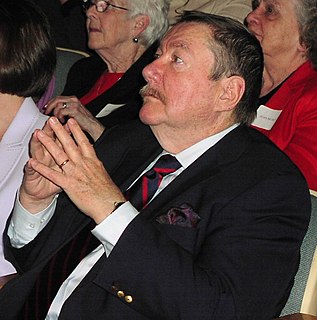A Quote by Ruskin Bond
I wrote 'Time Stops at Shamli' in 1956, shortly after 'The Room on the Roof' was published, and I couldn't find anyone to publish it.
Related Quotes
The first thing a writer has to do is find another source of income. Then, after you have begged, borrowed, stolen or saved up the money to give you time to write and you spend all of it staying alive while you write, and you write your heart out, after all that, maybe no one will publish it, and if they publish it, maybe no one will read it. That is the hard truth, that is what it means to be a writer.
I had a cup of tea with Michael Howard after my appointment shortly after I became Home Secretary, and without telling tales out of school, shortly after I became Home Secretary, and he said that when people used to ask him whether he enjoyed it he'd reply that "enjoy" wasn't quite the right description.
As a young man just beginning to publish some short fiction in the t&a magazines, I was fairly optimistic about my chances of getting published; I knew that I had some game, as the basketball players say these days, and I also felt that time was on my side; sooner or later the best-selling writers of the sixties and seventies would either die or go senile, making room for newcomers like me.
My first book published in France was translated and titled Exercices d'Attente in 1972. It was a collection of short works written and published in Romania. In 1973 I was ready to publish the novel Arpièges, which I had started writing in Romanian and of which I had published some fragments under the title Vain Art of the Fugue. Some years later, I finished Necessary Marriage.
I think about my education sometimes. I went to the University of Chicago for awhile after the Second World War. I was a student in the Department of Anthropology. At that time they were teaching that there was absolutely no difference between anybody. They may be teaching that still. Another thing they taught was that no one was ridiculous or bad or disgusting. Shortly before my father died, he said to me, ‘You know – you never wrote a story with a villain in it.’ I told him that was one of the things I learned in college after the war.
Shortly after the birth control pill was approved for public distribution, one woman wrote to John Rock, its inventor, "You should be afraid to meet your maker." Rock, despite being Catholic replied, "My dear Madam, in my faith, we are taught that the Lord is with us always. When my time comes, there will be no need for introductions."
































